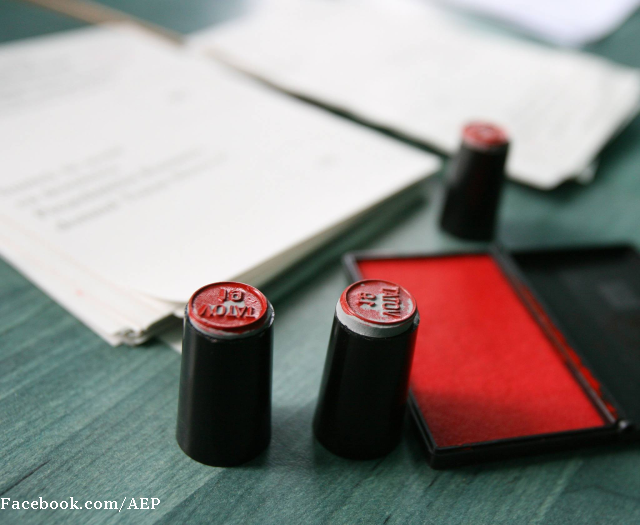X-ray In An Election Year
2024 promises to be a special year, with many elections, which will set the course for Romanian society for the coming years

Corina Cristea, 12.01.2024, 14:00
2024 promises to be a special year, with many elections, which will set the course for Romanian society for the coming years. There will be European, local, legislative and presidential elections, elections with high stakes, because they have the potential to reset Romania’s current political picture. A look at it sets apart the two parties that currently govern, PSD and PNL, and which during this term, a first for Romania, negotiated and respected a swap at the top of the executive. The Social Democrats are now credited with 30%, while the Liberals have 20% of voting intentions. On the other hand, the opposition has many more components. First of all, there is a democratic opposition – formed by the recently established United Right Alliance, which includes the Save Romania Union, the Popular Movement Party, and Forța Dreptei – and the UDMR, which relies, as always, on its ethnic Hungarian voters. Also in opposition we find the Alliance for the Union of Romanians, credited with 19.5% in opinion polls, and which, mainly against the backdrop of economic problems, coagulated around itself other small formations, forming what is defined as the sovereignist pole. There is also a dissident wing of the AUR, S.O.S., of controversial senator Diana Şoşoacă, a formation that seems to have a chance of entering the legislature thanks to the 5 percent it is credited with in the polls. The parties that run on the sovereignist corridor collect about 25% of the votes, a percentage that is likely to increase a little until the elections, while 70-75% of the Romanian society still resonates with political moderation. The start of voting will be in June, with the European Parliament elections.
Sociologist Remus Ștefureac told us about the internal and external context in which this year’s elections are taking place
We have European parliamentary elections, which will influence not only Romania, but the whole of the EU. I think this will reset things a bit, considering the rise of certain currents. One of them is the US presidential elections, which will have an important and extremely sensitive geopolitical dimension for the area in which we live, for the evolution of the conflict in Ukraine, and implicitly for the security climate on which Romania directly depends. And, last but not least, the 2024 elections come after a four-year succession of crises, from the pandemic, to a health crisis, to a crisis of confidence, including a change in the way information is communicated. Practically, after the pandemic, we also witnessed an explosion of everything that means conspiracies, misinformation, collective anguish, doubled by the economic crisis, inflation, an energy crisis, and a terrible security climate. Practically, Romania has not been in such a situation for almost 70 years, with a war on the borders of the country, in which Russia is the main aggressor. All this causes a strong state of anxiety, greatly influences public perception, the fears in society are diversified, even if at the moment they are focused on domestic problems.
The battle will take place very much online. That is, it will be, in one opinion, the first totally digitized campaign, with massive use of social platforms and the media by all parties, says Sebastian Fitzek, specialist in political communication:
Facebook, Instagram, Tik Tok – all will become hot areas of confrontation where candidates will invest heavily in targeted promotion and troll armies, sometimes fake news. The campaign themes will generally revolve around the economy, around raising the standard of living, but also on criticism, Fiscal diagnoses will, of course, always be present. It will be a fierce fight between the AUR camp and the other parties, this has already been predicted, so it will be an extremely close fight, with real chances of alternation in government between PNL and PSD. Obviously, both parties that are already morally worn out after the governing in 2023 will probably also make a little room for the USR and this right-wing alliance that just ended recently, and that will seek to enter the government if, above all, the PNL collapse.
At the European level, one of the main themes of the electoral campaigns will certainly be that of migration, points out university professor Adrian Cioroianu, former Minister of Foreign Affairs, also referring to the attacks in Europe in recent years
These leave scars. The feeling that your identity as a society is being diluted, but more than that, that you have a worm in the social body that is gnawing at the apple from the inside, and this worm could be religious extremism, all of that posed a problem that we would not have worried about 20 years ago. And I think that a good part of the success of these sovereignist parties also took into account this issue of immigration, which is talked about a bit more than the normal, mainstream parties, the ones that set the tone of politics in Europe. Forget what happened in the Netherlands, what is happening in northern countries, or, conversely, in southern countries like Italy. Look at the success of Victor Orban in Hungary, or the prime minister of Austria, who still keeps this topic of migration at the forefront. And, at least for a massive segment of society, these themes are successful.
Regarding the elections in Russia, Professor Cioroianu believes that they will not change the landscape much, because the winner is 99% known. Instead, the US election, he says, are so important that they can change not only the situation in America, but in Europe and the Asia-Pacific area equally.





























